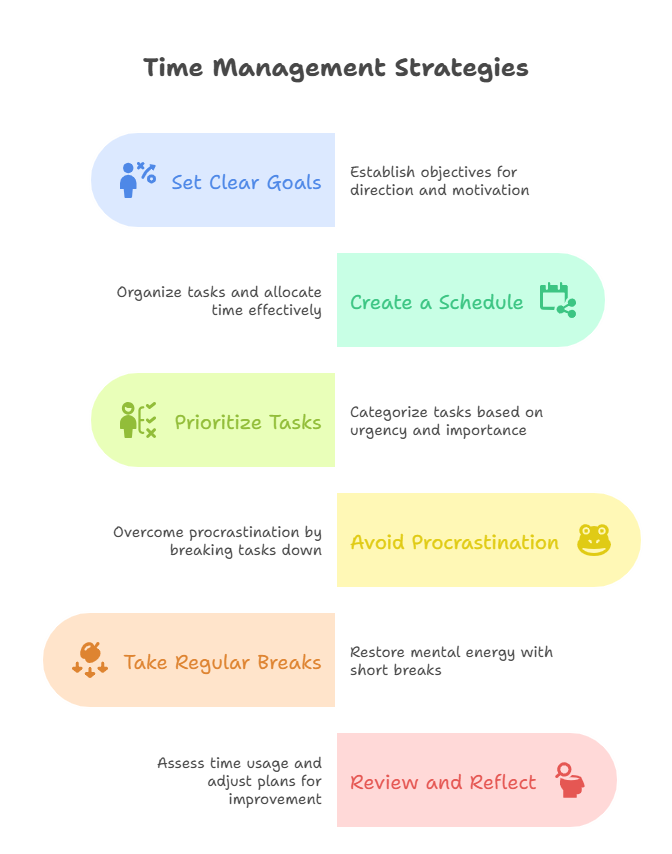Monika Jain, Assitant Professor, Agarwal Girls College.
Introduction
In the present era, time has emerged as the scarcest and most valuable resource. Unlike money or material possessions, time is finite and irreversible. Every individual, regardless of status or background, is allotted the same 24 hours in a day but what differentiates successful people from others is how they manage those hours.
In an age marked by rapid technological advancements, constant digital distractions, and increasing demands on our attention, the ability to manage time efficiently has become one of the most critical life skills. Effective time management is not merely about being busy; it is about being purposeful, productive, and strategic with one’s time.
As the renowned management thinker Peter Drucker noted, “Time is the scarcest resource and unless it is managed, nothing else can be managed.” This insight underscores the importance of time management as a foundation for personal and professional success.
Those who master this skill are often:
- More focused and goal-oriented
- Able to maintain a healthy work-life balance
- More resilient to stress and burnout
- Positioned to achieve greater success in their pursuits
In essence, time management is not just a technique it is a mindset that empowers individuals to take control of their lives. In a world where time is the new currency, those who spend it wisely are the ones who thrive.

Academically, time management refers to the strategic planning and conscious control over time spent on specific activities to enhance efficiency and productivity. In an age characterized by constant connectivity and increasing demands, managing time effectively has become not just a skill but a necessity. From students striving to balance academics and personal development, to professionals navigating complex deadlines, the ability to manage time can determine the difference between stress and success.
As Benjamin Franklin once remarked, “Lost time is never found again.” This emphasizes the value of time as an irreplaceable asset that, if wasted, cannot be reclaimed.
The Importance of Time Management
Time is a finite resource, and its judicious use has profound implications for one’s personal and professional life. Effective time management leads to increased productivity, reduced anxiety, and a clearer focus on goals. It allows individuals to meet deadlines without compromising quality, maintain a balanced lifestyle, and adapt to unforeseen challenges with ease.
According to Peter Drucker, the father of modern management, “Time is the scarcest resource, and unless it is managed, nothing else can be managed.” Those who master time management are more likely to achieve their goals while preserving their mental and emotional well-being.
Time Management for Students
For students, time management is an essential life skill that fosters academic success and holistic development. Juggling lectures, assignments, exams, extracurricular commitments, and social life requires structured planning. A well-managed routine helps students stay on track, avoid last-minute stress, and achieve better academic outcomes. Moreover, learning to prioritize tasks in stills discipline, accountability, and decision-making skills.
As motivational speaker Zig Ziglar once said, “Lack of direction, not lack of time, is the problem. We all have twenty-four-hour days.” Students who learn to direct their time toward meaningful activities often enjoy improved academic performance and personal growth.
Tips for Effective Time Management
To cultivate effective time management, individuals can implement several practical strategies:

- Set Clear Goals – Establishing short-term and long-term objectives provides direction and motivation. SMART goals (Specific, Measurable, Achievable, Relevant, Time-bound) are especially useful in maintaining focus.
- Create a Schedule – Utilizing planners, calendars, or digital apps helps in organizing tasks and allocating time appropriately. Visual schedules allow for better planning and adjustment.
- Prioritize Tasks – Categorize tasks based on urgency and importance. The Eisenhower Matrix, for instance, is a valuable tool for distinguishing between what needs immediate attention and what can be delegated or delayed.
- Avoid Procrastination – Procrastination is a significant barrier to productivity. Overcoming it requires commitment and breaking large tasks into smaller, manageable steps. As Mark Twain advised, “If it’s your job to eat a frog, it’s best to do it first thing in the morning.”
- Take Regular Breaks – Research shows that short breaks can restore mental energy and enhance focus. The Pomodoro Technique, which involves 25-minute work intervals followed by 5-minute breaks, is widely effective.
- Review and Reflect – Periodically assess how time is being used. Adjust plans based on what works and identify areas of improvement. Self-reflection helps in refining strategies for better results.
In nutshell, time management is not merely a technique but a mindset that aligns effort with purpose. It empowers individuals to work smarter, not harder, and to navigate responsibilities with confidence and clarity. In both academic and professional contexts, mastering time management fosters not only achievement but also a greater sense of control over one’s life. As Jim Rohn aptly put it, “Either you run the day or the day runs you.” By embracing time management as a lifelong discipline, individuals move closer to realizing their full potential and leading a more organized, meaningful, and successful life.

अधिक जानकारी के लिए संपर्क करें:
📍Agarwal Girls College, Sri Ganganagar
2 ML, Nathanwali, Hanumangarh Road
Sri Ganganagar – 335002
Phone: 0154-2480034
Mobile: 9001238005
🌐 वेबसाइट: https://agarwalgirlscollege.co.in
For Any Query Please Contacts Us
For Details Please Visit Our Official Website




